Anti-trade rhetoric in US a deep concern
Updated: 2016-10-29 08:59
By Chen Weihua(China Daily)
|
||||||||
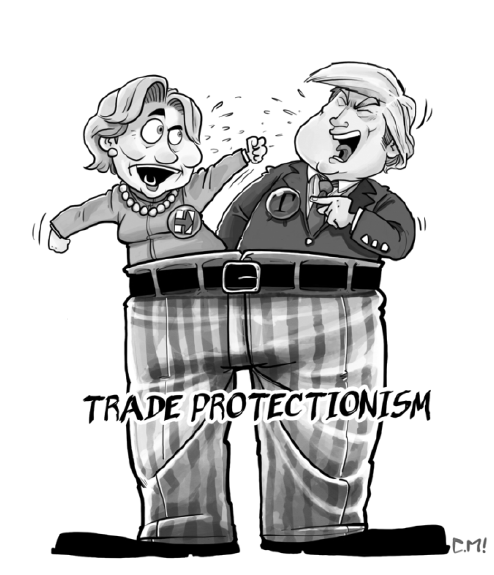 |
| CAI MENG/CHINA DAILY |
It is surprising to see the strong protectionism sentiment propagated by the two presidential candidates in the United States, a country that has long touted itself as the champion of free trade. Democrat Hillary Clinton and Republican Donald Trump may disagree sharply on many issues, but their protectionist and anti-trade rhetoric is quite similar.
Almost from the beginning of his electoral campaign, Trump has pledged to impose a 45-percent punitive tariff on Chinese imports, which is not only irrational, but also impossible given the possible Chinese retaliation, the strong opposition from the powerful US business community and the violation of World Trade Organization rules.
Clinton, meanwhile, has repeatedly accused Trump of outsourcing his products from 12 countries, as if everything Americans use must be made in the US. If outsourcing products globally is a crime, then Clinton is making a charge against tens of thousands of US companies. All the Fortune 500 companies, many of which have provided donations for the Clinton campaign, should be brought to justice because they are all producing goods and services in other countries including China.
What is even more ridiculous is that The Washington Post, which endorsed Clinton on Oct 13, ran a fact check last week before confirming the allegation to be true. The newspaper's "investigative journalist" not only found the names of the 12 countries, but also exposed "a complete inventory" of Trump products made overseas, from Trump shirts made in China, Bangladesh, Honduras and Vietnam, and Trump home articles manufactured in Turkey, Germany, India and Slovenia to Trump Vodka made in a distillery in the Netherlands.
That reminded me of what I discovered in the official merchandise store of the Democratic National Convention in Philadelphia in late July. While T-shirts and mugs had "made in USA" markings, the labels of origin could not be found on golf balls, socks and caps. I'm not sure if they had been taken off deliberately to avoid a debate on political correctness.
What Clinton and Trump also share is their opposition to the Trans-Pacific Partnership, a trade agreement between the US and 11 other Pacific Rim countries.
Clinton once touted the TPP as gold standards but has made a U-turn since launching her election campaign, in a bid to win important union voters, especially after people like AFL-CIO President Richard Trumka gave a call to stop TPP.
A Pew Center survey in January this year showed that the favorable view of trade deals among Americans is down 8 percentage points since 2014. It's anybody's guess whether Clinton's U-turn helped her win people's support, as most polls show her leading nationally less than two weeks before the Nov 8 election.
The Barack Obama administration doesn't have a good track record either. A Business Insider story last year quoted Credit Suisse and Global Trade Alert, a London-based independent academic and research think tank, as saying that the US has imposed more protectionist measures than any other country since the global financial crisis in 2008.
World Bank President Jim Yong Kim and International Monetary Fund Managing Director Christine Lagarde expressed deep concern recently over the anti-trade and protectionist rhetoric by the US presidential candidates.
Ironically, for the last more than three decades, that is, since China launched its reform and opening-up, the West, especially the US, had been lecturing Beijing on the merits of free trade. It appears today that China is championing globalization and free trade as the West opposes them. The G20 Leaders Summit in Hangzhou, East China, in early September, too, made people realize the depth of China's belief in globalization.
The author is deputy editor of China Daily USA. chenweihua@chinadailyusa.com
- Hefty award offered for deciphering oracle bone characters
- China Daily brings you 'sixth plenums' in past 35 years
- Party ramps up supervision
- 400,000 migrant workers flock to Xinjiang to harvest cotton
- China anticipates booming job market in 2016
- Online shopping platform selects cat as 'chief cute officer'
- Asia American leaders discuss civic engagement
- World's disabled get new champion
- Clinton, Michelle Obama make first joint campaign appearance
- Miss Philippines wins 2016 Miss International Beauty Pageant
- Trump's Hollywood Walk of Fame star destroyed
- Maduro activates Defense Council to seek solution to crisis
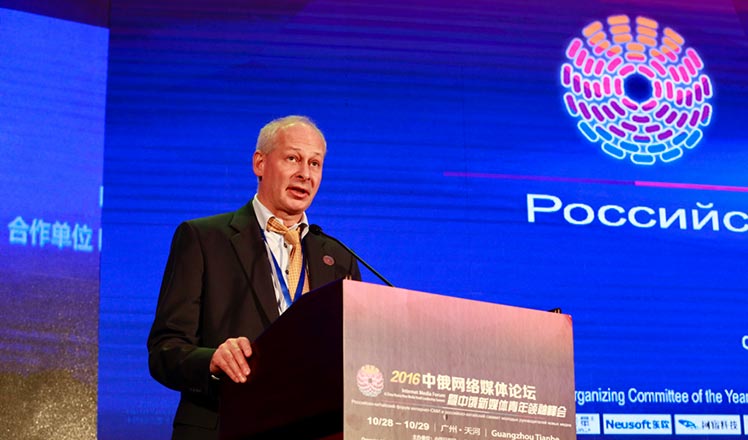
 China-Russia Internet Media Forum opens in Guangzhou
China-Russia Internet Media Forum opens in Guangzhou
 2016 Comedy Wildlife Photography Awards Finalists
2016 Comedy Wildlife Photography Awards Finalists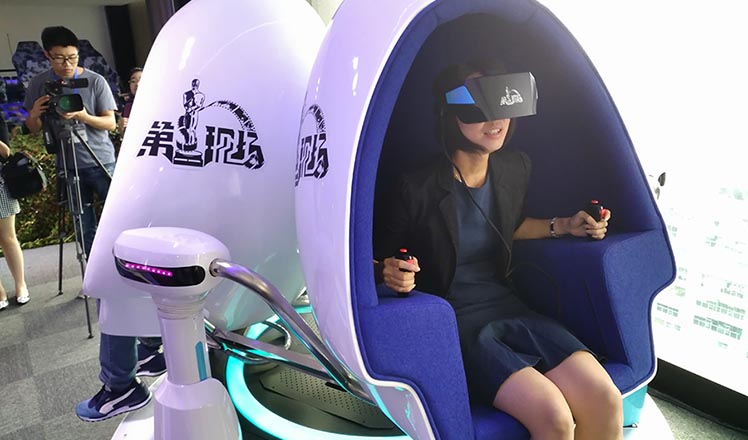
 NINED VR creates splash with virtual reality products
NINED VR creates splash with virtual reality products
 Splendid Sichuan captured in photos
Splendid Sichuan captured in photos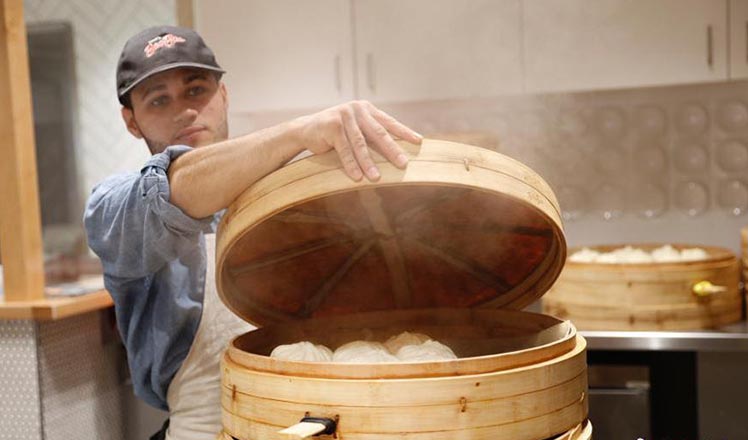
 Chinese baozi shop gains popularity in Harvard Square
Chinese baozi shop gains popularity in Harvard Square
 Chinese mariner on record-breaking voyage goes missing
Chinese mariner on record-breaking voyage goes missing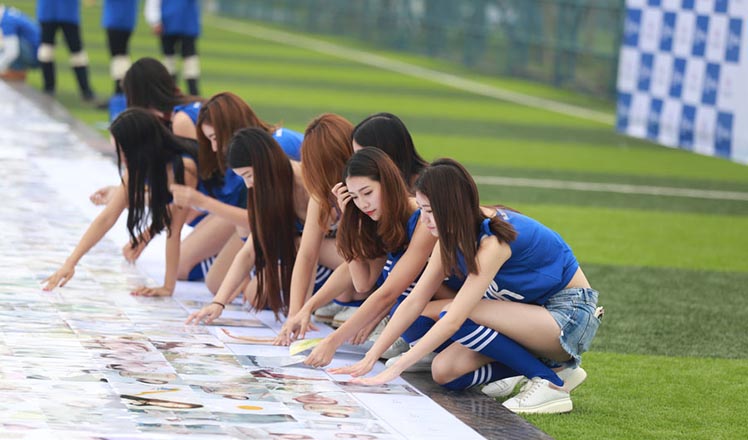
 2045-square-meter photo mosaic breaks world record
2045-square-meter photo mosaic breaks world record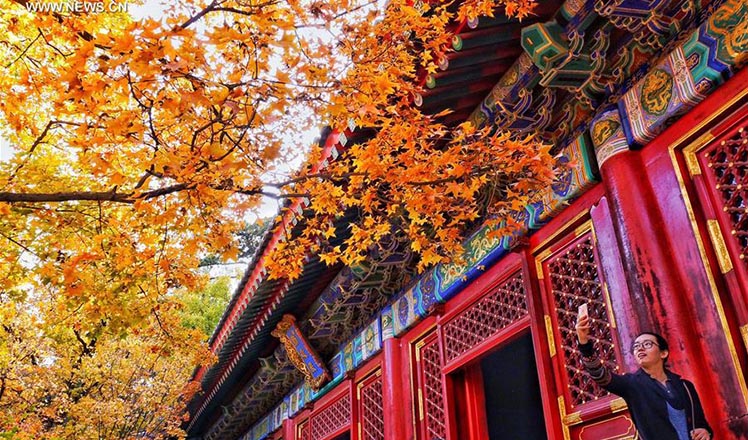
 Red leaves reveal beauty of autumn
Red leaves reveal beauty of autumn
Most Viewed
Editor's Picks

|

|

|

|

|

|
Today's Top News
'Zero Hunger Run' held in Rome
Trump outlines anti-terror plan, proposing extreme vetting for immigrants
Phelps puts spotlight on cupping
US launches airstrikes against IS targets in Libya's Sirte
Ministry slams US-Korean THAAD deployment
Two police officers shot at protest in Dallas
Abe's blame game reveals his policies failing to get results
Ending wildlife trafficking must be policy priority in Asia
US Weekly

|

|







